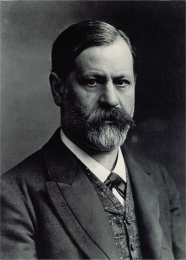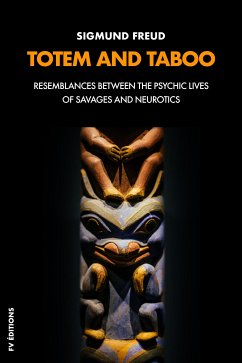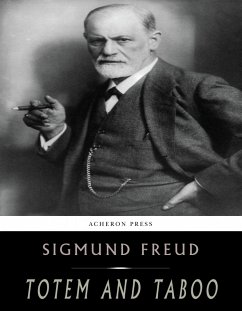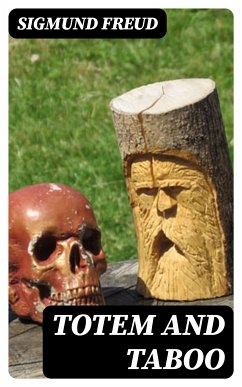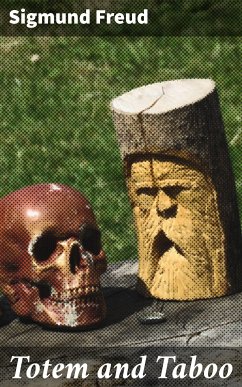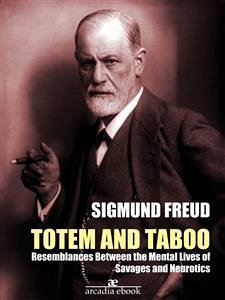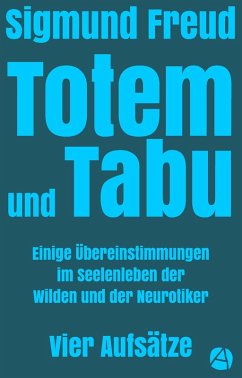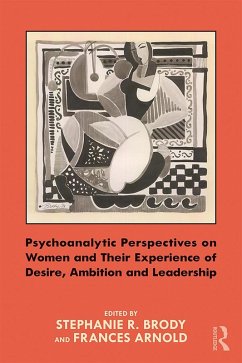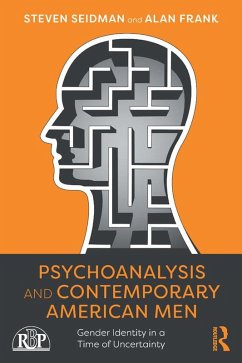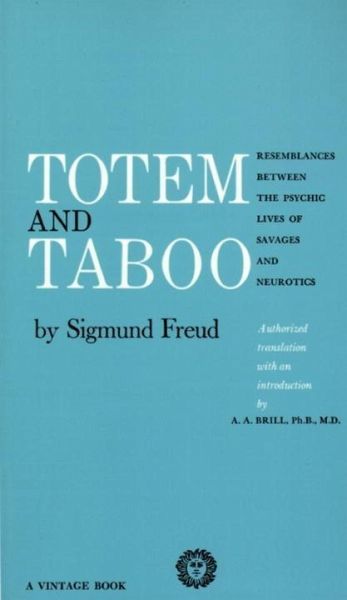
Totem and Taboo (eBook, ePUB)
Resemblances Between the Psychic Lives of Savages and Neurotics

PAYBACK Punkte
2 °P sammeln!
In this brilliant exploratory attempt (written in 1912-1913) to extend the analysis of the individual psyche to society and culture, Freud laid the lines for much of his later thought, and made a major contribution to the psychology of religion. Primitive societies and the individual, he found, mutually illuminate each other, and the psychology of primitive races bears marked resemblances to the psychology of neurotics. Basing his investigations on the findings of the anthropologists, Freud came to the conclusion that totemism and its accompanying restriction of exogamy derive from the savage'...
In this brilliant exploratory attempt (written in 1912-1913) to extend the analysis of the individual psyche to society and culture, Freud laid the lines for much of his later thought, and made a major contribution to the psychology of religion. Primitive societies and the individual, he found, mutually illuminate each other, and the psychology of primitive races bears marked resemblances to the psychology of neurotics. Basing his investigations on the findings of the anthropologists, Freud came to the conclusion that totemism and its accompanying restriction of exogamy derive from the savage's dread of incest, and that taboo customs parallel closely the symptoms of compulsion neurosis. The killing of the "primal father" and the consequent sense of guilt are seen as determining events both in the mistry tribal pre-history of mankind, and in the suppressed wishes of individual men. Both toteism and taboo are thus held to have their roots in the Oedipus complex, which lies at the basis of all neurosis, and, as Freud argues, is also the origin of religion, ethics, society, and art.
Dieser Download kann aus rechtlichen Gründen nur mit Rechnungsadresse in A, B, BG, CY, CZ, D, DK, EW, E, FIN, F, GR, HR, H, IRL, I, LT, L, LR, M, NL, PL, P, R, S, SLO, SK ausgeliefert werden.




